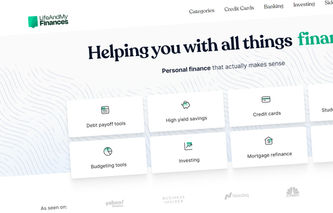Do you have credit card debt? If so, depending on your finances and what you owe, you may be wondering if it's bad. First, money has no moral standing. You are not a bad or good person based on your savings, income, or debt. But, if you're wondering "Is 2000 in credit card debt bad?" keep reading and see! Spoiler alert; it's not bad, but you can pay it off if you want to (and we do advise that you do!).
Similar articles:
Free Credit Card Payoff Calculator Excel Spreadsheet (Simple Debt Payment Template)
Free Credit Card Payoff Calculator: Excel and Google Sheets Template
Free Debt Snowball Spreadsheet (Excel Payoff Calculator & Tracker)
Free Debt Avalanche Excel Spreadsheet — Learn How to Make a Debt Spreadsheet Yourself
FREE Debt Snowball vs Avalanche Calculator (Which Payoff Method is Best?)
Is 2,000 in credit card debt a lot?
In theory, no. $2,000 is actually lower than the national average of credit card debt. So if you owe 2000 on your credit cards, you aren't alone. And, with a little time and diligence, you could pay it off with ease.
Is 3,000 in credit card debt bad?
What about $3,000 in credit card debt? $3,000 owed on credit cards is still lower than the national average. And again, I don't want to say that any debt is "bad", because sometimes we have no choice but to get into debt. So don't look at it as bad or good.
Look at it as "Can I afford to pay this off, and if so, when?". This will help you come up with a better financial plan, versus just worrying about the debt.
Is 50,000 in credit card debt bad?
Whew, $50,000 in credit card debt?? This is well over the national average of debt and can be harder to pay off — especially if you have a lower income or high-interest rates. But while I don't advise being in $50,000 of credit card debt, it is possible to work out and pay it off if you make the choice!
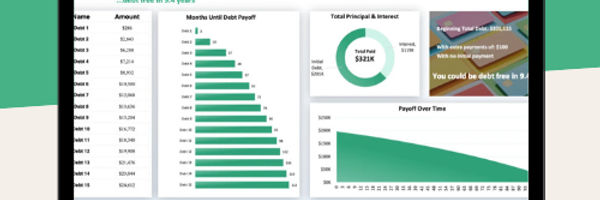
Lay out your credit card debt with the minimum payments and interest to see how long it will take to pay off!
What you will get:
Interactive dashboard
Customizable to your needs
Stay on track with charts and graphs
Suitable for up to 16 or 32 debts!

What is an acceptable amount of credit card debt?
Honestly, this depends on who you ask. Of course, most financial gurus will say that you shouldn't have credit card debt at all. But some friends and family may tell you that everyone has credit card debt and it's no big deal.
Overall, the average accepted answer is that you shouldn't have more than10% of your take-home pay in credit card debt. So if you bring home $50,000 a year, try to keep your credit card debt to a maximum of $5,000.
How much credit card debt is considered high?
Most credit lenders prefer if you keep your credit utilization to below 30%. So if your credit card has a limit of $10,000, you shouldn't be using more than $3,000. In fact, the higher your spending on a credit card, the more it impacts your credit score. So the lower the better.
What is the average credit card debt?
In 2021, the average credit card debt was $6,569. There are no 2022 reports as of yet, but the number is expected to rise.
What age group has the highest average credit card debt?
You may be surprised to know that those with the highest credit card debt are adults 75 or older. Their credit card debt averages at $8,100.
However, only a quarter of the people in this age group have debt. If you want to know which group has the most credit card debt, that's Gen X (45-54), with over 52% owing on their card.
Is it OK to have a little bit of credit card debt?
Sometimes, you just can't help but get into credit card debt. Life happens to all of us. So yes, it's okay to have a little bit of credit card debt from time to time. However, if you're trying to reach certain financial goals, it may be better to pay off your debt so you can spend more money on those instead.
How do people get trapped in cycles of credit card debt?
This is a complicated question that has so many factors and answers that can affect why someone gets trapped in a cycle of credit card debt. But for most, it's a way to try to get into a better life.
Not surprisingly, people use their credit cards to pay for everyday expenses, like rent and groceries. And some have to pay for medical debt to avoid collections, so they use their credit card for that too. This can easily lead to robbing Peter to pay Paul and being in the cycle of trying to get out of debt but getting back into it because of unforeseen circumstances (or long-term poverty).
But, this doesn't mean that it's impossible to get out of that cycle. It will be hard, and it will take work and dedication. But there are many people who have been able to pay off their credit card debt.
Is it better to close a credit card or leave it open with a zero balance?
This depends on your future financial goals. Closing a card after paying it off can cause your score to drop for a little while.
So if you have any upcoming goals that will require a decent credit score (like getting a mortgage), you may not want to close the card just yet.
But, if you don't plan on getting into future debt, moving, or using your credit score any time soon, closing your card may be a better option. This is especially true if you tend to be a spender and feel you'll be tempted to use it.
How can I get out of 2000 credit card debt?
Now that you know about your credit card debt and how it affects your day-to-day life, let's talk about the ways you can pay it off.
1) Have A Budget
First, the easiest way to start paying off your credit card debt is to know how much you have and when you can pay it off. To be able to do this, you'll need to know your income and expenses — so having a budget is essential!
When you create your budget, know that it may not be perfect right away, and that's okay. Instead, focus on what you can realistically pay towards your credit card debt, and how long it will take you to pay it off based on your current income and expenses.
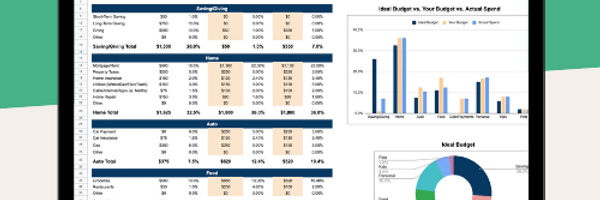
Simple, quick, and easy monthly budget template for Google Sheets and Excel.
With this template, you will get:
Pre-set expense categories
Simplified dashboard and day-by-day monthly tracker
Automated charts for comparison
Day-by-day views for budgets and actual spend

Read more:
2) Focus On High-Interest Debt
Next up, focus on whatever has the highest interest rate. If you only have one credit card, this won't apply. But. if you have multiple cards with different balances, you'll want to know these numbers.
The higher the interest, the more money you have to pay each month to eventually pay the card off. So focusing on the highest interest rate means keeping more money in your pocket in the long run.
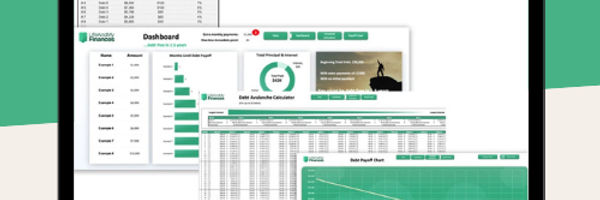
Want to get out of debt this year? This avalanche debt payoff spreadsheet is what you need!
A few top features of this template:
Fully customizable and easy to “play around” with
This tool is awesome for motivation!
Room for up to 32 debts!

3) Pennies Count
Even if you're lower-income, it's possible to pay off your debt. It may not happen right away, and it may take you longer than the average person, but that's not what's important. What's important is reaching the goal you set — no matter how long it takes!
But remember, dollars aren't the only things that add up over time. In fact, the cents count too. And by taking your debt payoff little by little, versus trying to pay it off in chunks, you can build healthy financial habits overall. And these little tweaks and pay downs can mean saving money on interest and paying off your debt faster.
One of the best ways to do this is to round up your purchases. For example, if you spend $27.26, you can round it up to $28 and send .74 cents to your card, or round up to the nearest ten (aka $30) and pay $2.74. By doing this with each transaction, your debt payments can easily add up to at least an extra $50 or so each month!
You can do this manually, and send the money right over, or use a tool like Qapital and let it sit in savings until you're ready to use it.
Should I close my credit card after paying it off?
As noted above, this will depend on your future goals. But, I think it's possible to keep your card open and avoid future debt. Just be sure to pay it off if you spend money on it, and keep up with your budget!

Lay out your credit card debt with the minimum payments and interest to see how long it will take to pay off!
What you will get:
Interactive dashboard
Customizable to your needs
Stay on track with charts and graphs
Suitable for up to 16 or 32 debts!

Verdict: Is 2000 In Credit Card Debt Bad?
So is 2000 in credit card debt bad? While $2,000 owed isn't a terrible or high number, it could stand in the way of other financial goals. So if you don't want to be in debt, or need to pay it down, it's possible to do so! Pay off that credit card today! You won't regret it!
SOURCES
2023 Credit Card Debt Statistics | LendingTree. (n.d.). Retrieved March 17, 2023, from https://www.lendingtree.com/credit-cards/credit-card-debt-statistics/
Average Credit Card Debt in America: 2022 | MoneyGeek.com. (n.d.). Retrieved March 17, 2023, from https://www.moneygeek.com/credit-cards/analysis/average-credit-card-debt/
Credit Card Debt: The 5 Leading Causes of Credit Card Debt | Americor. (n.d.). Retrieved March 17, 2023, from https://americor.com/the-5-leading-causes-of-credit-card-debt/
What to Know About Credit Card Debt. (n.d.). Investopedia. Retrieved March 17, 2023, from https://www.investopedia.com/terms/c/credit-card-debt.asp
How Much Credit Card Debt Is Too Much? (n.d.). US News & World Report. Retrieved April 27, 2023, from https://money.usnews.com/credit-cards/articles/how-much-credit-card-debt-is-too-much
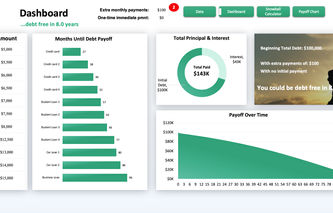
.jpg)
